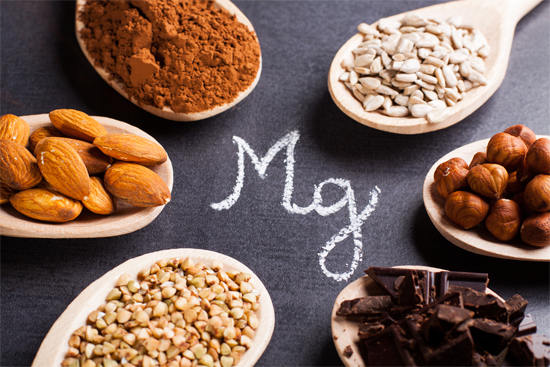Magnesium that is the key to healthy bones, not calcium
Growing up we were all under the impression that calcium strengthens bones.
According to a study in 2004, people with extra calcium in their coronary arteries are more susceptible to having a heart attack. Scientists have established that calcium accumulation and LDL levels are two of the most common risk factors of heart attacks.

Another research from 2007 showed that calcium from dietary sources is way better for postmenopausal women that calcium from supplements.
A meta-analysis from 2010 showed that calcium supplements are related with increased risk of a heart attack.
Calcium supplements are known by the public and medical community, that they are safe and critical to prevent fractures, yet a risk of kidney stones and other health issues could arise when taking too much calcium supplements.
However, magnesium is the key to healthy bones. Calcium is just another mineral which is necessary to have stronger bones.
Magnesium definitely does not get the attention it deserves. Magnesium is responsible for more than 700 enzyme-activated reactions in the body. It also helps create energy, as well as regulating blood pressure, heart rate and blood sugar levels. Magnesium helps the nerves function and muscles relax. Hence the spasms in your legs or feet, apparently it is a lack of magnesium.
Are you stressed out? Make sure you have enough magnesium.
Magnesium is known to reduce muscle tension, lessen pain associated with migraine headaches, improve sleep, and address neurological disorders such as anxiety and depression.
Conditions linked to magnesium levels include:
Pain:
– Headaches;
– Muscle spasms and muscle cramps;
– Fibromyalgia.
Mental health and sleep:
– Anxiety;
– Depression;
– Autism and ADD;
– Restless Leg Syndrome (RLS);
– Insomnia;
– Tics.
Other conditions:
– Psoriasis, acne and eczema;
– Asthma;
– Blood pressure;
– Diabetes;
– Osteoporosis.
Moreover, magnesium is very important for the body as it:
– Allows nerves to send messages in the brain and nervous system;
– Aids and regulates the body’s use of calcium and other minerals;
– Assists in bone and teeth formation.
Magnesium is especially helpful for women! Fluctuating hormones affect magnesium levels, making women more sensitive to magnesium deficiency than men.
Ladies, have you ever wonder why you crave chocolate before your period? It’s because your body is clamoring for magnesium, and dark chocolate (80-plus percent cocoa) has more magnesium than any other food. Magnesium levels fluctuate during a woman’s cycle. Increasing dietary magnesium can help relieve PMS-related symptoms, such as headaches, bloating, low blood sugar, dizziness, fluid retention and sugar cravings.
It would seem that calcium is important, but it looks like that magnesium maybe even more important.
Most of us grew up believing that milk is good for us…
Despite the fact that one can get their daily recommendation of calcium, potassium, and protein from fruits and vegetables, the dairy industry has spent billions of dollars to convince consumers otherwise. The dairy business promotes the myth that consuming pasteurized dairy items such as cheese or milk improves calcium levels. That is not true. Throughout the purification process, calcium carbonate is created, and it does not enter the cells if there is no chelating agent present.
Despite being a somewhat tasty addition to cereal coffee replacement, tea, and delectable treats, the ingredient – when pasteurized – is highly toxic to the human body. In fact, physicians such as Dr. Willet, who has conducted many studies and reviewed the research on the topic, believe milk to be more of a detriment to the human body than an aid.
You could take a magnesium and calcium supplement. The RDA (Recommended Daily Allowance) for magnesium is from 350 to 400 mg a day. Yet the ideal amount would be twice as much.
Magnesium may be taken on an empty stomach or alternatively with meals.
A wonderful relaxing way to get magnesium into your body is by having bath with Epsom salts. Your skin will absorb the magnesium.
Nuts, cacao and seeds are some of the richest sources of magnesium.
yogaesoteric
April 17, 2019
